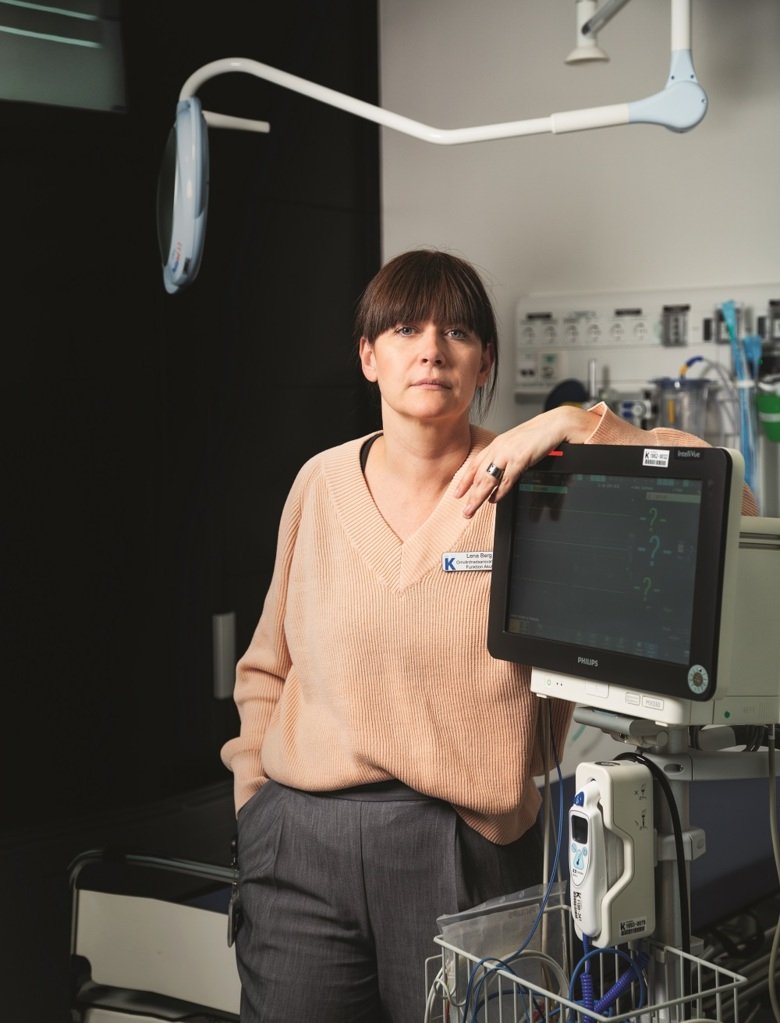The moment: “Sometimes you need to be left alone to work”
Is it okay to constantly be interrupted at work? Of course not, was Lena Berg’s answer, until she met her polar opposite.
Name: Lena Berg
Title: Head of Functional Area of Emerg Med Solna, Karolinska University Hospital, and researcher at Karolinska Institutet.
Conducts research into: How patient safety at emergency wards is impacted by crowding, multitasking and interruptions.

“I remember us looking at each other, my colleague and I, as we came out of that interview. We were researching how emergency ward staff perceived the constant interruptions in their work. We thought it was evident that all these interruptions were a big problem. But the older doctor we had just spoken to did not understand what we were getting at. ‘It’s no problem at all – it’s my job to be constantly interrupted by the young doctors!’, he said.
I was working as an emergency ward nurse at the time, and I would often feel powerless because there was just so much going on at the same time, and I never got to finish anything, being constantly bombarded with other tasks. One time, I hid in the drug repository and cried. ‘Do I have to come in here to be able to work?’ I thought to myself.
For this reason, the older doctor’s reaction in our interview seemed completely incomprehensible – but also interesting! This was something we needed to take a closer look at. Since then, our research and that of others has shown that interruptions can be everything from very disturbing to not disturbing at all, even experienced as something positive. A number of factors play a part in this – from your personality and professional experience to your role in the organisation and scope to say no. It is especially significant which task is being interrupted – sometimes you just need to be left alone to work.
This is important knowledge if we are to achieve a more reasonable working situation in the emergency ward. We cannot eliminate the interruptions, but we can steer them towards the situations where they cause the least interference possible – I’ll cover you when you’re on the phone, you do the same when I’m administering medicine. Both patients and employees stand to gain.”
As told to: Anders Nilsson, first published in Swedish in Medicinsk Vetenskap No 2/2019.

The magazine Medical Science
The magazine Medical Science (Medicinsk Vetenskap) is published by Karolinska Institutet and targets the general public interested in medical science.
